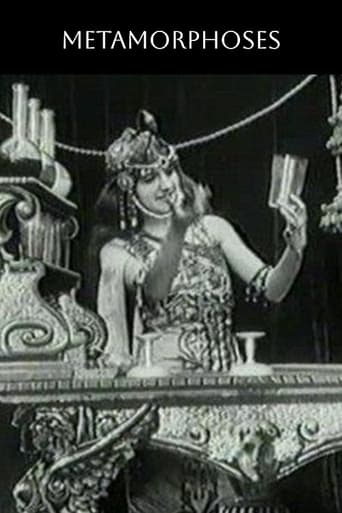



Powerful
Easily the biggest piece of Right wing non sense propaganda I ever saw.
View MoreThis is a dark and sometimes deeply uncomfortable drama
View MoreThe movie turns out to be a little better than the average. Starting from a romantic formula often seen in the cinema, it ends in the most predictable (and somewhat bland) way.
View More"Metamorphoses" is a 1912 silent film by none other than Segundo de Chomon, a Spanish filmmaker who worked for Pathe Freres from France. This is another magic act by the director, this time involving various transformations as performed by an oddly-dressed woman who has a table set up. She then makes various objects turn into others, by the use of beautiful flames that burn them down, then come back up to reveal a different thing. The visuals are at least new from what Melies was doing, and it's clear Chomon new how to change to the times, judging from how he used the closeup shots to make the film a little more sophisticated. The end is not really too good great, as the effects there are mostly dissolves and stagy sets painted to look like flowers, but then again, Chomon was probably saying "this is the finale!" It's not excellent but the early visuals with the flame closeups were something new to look at from what we've seen before.
View MoreFor most of his career, Segundo de Chomon had been the competitor of Georges Melies. In 1912, the year that Melies turned out his last pictures, de Chomon did his last in the style of Melies: a magic act of transformations.However, while Melies' work had remained largely static for the previous five years, growing in size and spectacle rather than in essence, here we see that de Chomon, who had begun in the industry as a cameraman, had learned much. Melies' work had remained a mixture of stage and simple camera illusion, smoke and mirrors and stopped cameras for transformations, all shot in medium long shot, whether real or illusory. In this movie, de Chomon not only uses these tricks, he uses stop motion animation freely in an effort to keep the now simple magic act up to date.Because there were no more works in this vein, it would appear that this was not a financial success. Both their times had passed. Melies lost his studio and burned his negatives in despair. De Chomon went back into more purely cinematographic efforts, including travelogues.
View More